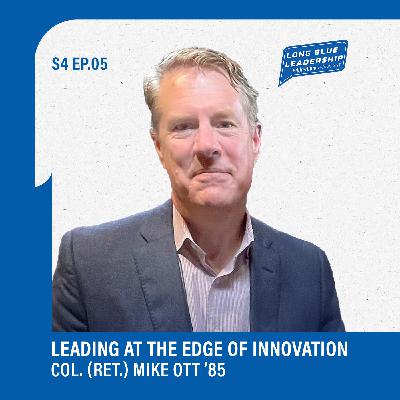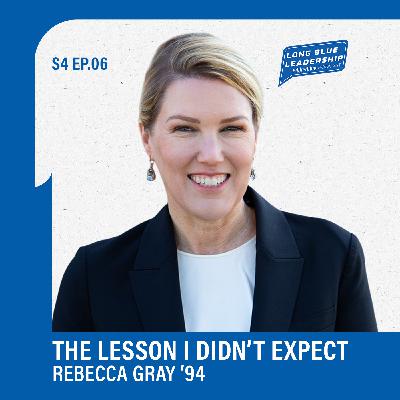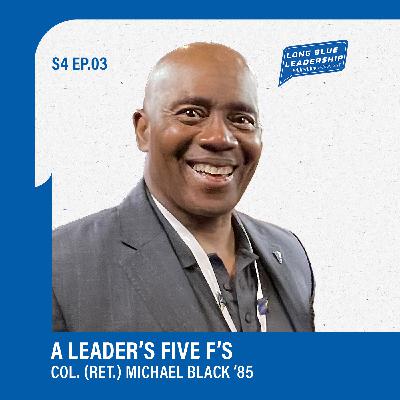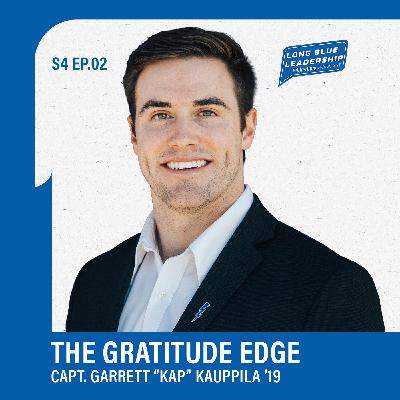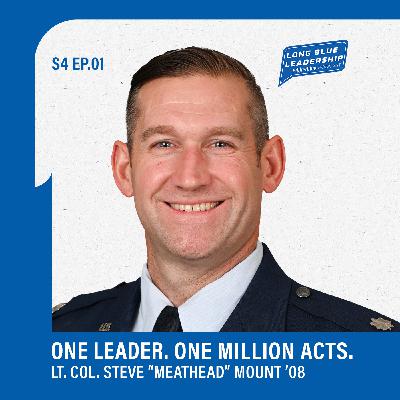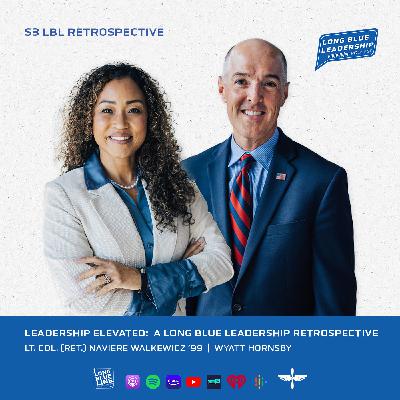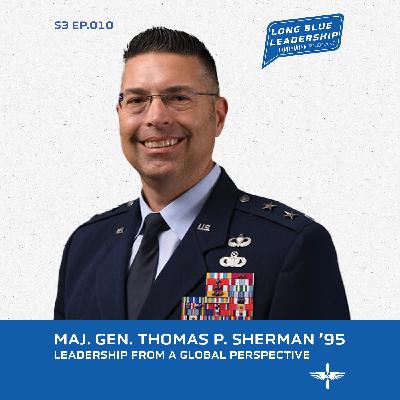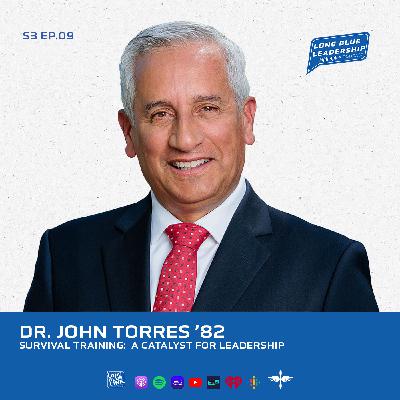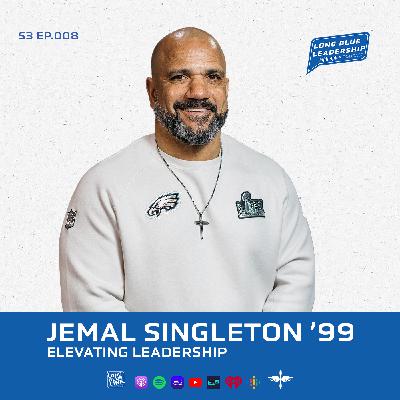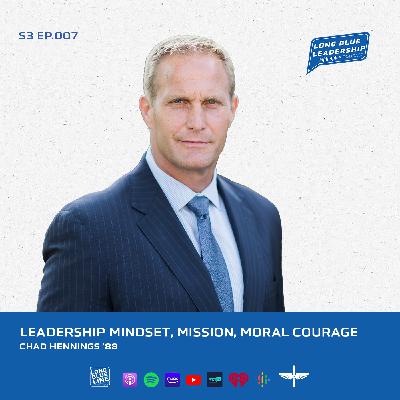Leading at the Edge of Innovation - Col. (Ret.) Mike Ott ’85
Description
The path to progressing as a leader isn’t always linear.
SUMMARY
Col. (Ret.) Mike Ott shows how a childhood dream can evolve into a lifetime of impact—from commanding in uniform to leading innovation in healthcare and national defense. Hear more on Long Blue Leadership. Listen now!
SHARE THIS PODCAST
MIKE'S LEADERSHIP TAKEAWAYS
- A leader worth his or her salt should be comfortable not being the smartest person in the room.
- Striving for a lack of hubris is essential in leadership.
- Setting a clear vision is a fundamental leadership skill.
- Moving people without authority is crucial for effective leadership.
- Resource management is key to achieving organizational goals.
- Acknowledging what you don't know is a strength in leadership.
- Effective leaders focus on guiding their teams rather than asserting dominance.
- Leadership is about influencing and inspiring others.
- A successful mission requires collaboration and shared vision.
- True leadership is about empowering others to succeed.
CHAPTERS
00:00 : Early Inspiration
06:32 : Academy Years
13:17 : Military Career Transition
21:33 : Financial Services Journey
31:29 : MOBE and Healthcare Innovation
40:12 : Defense Innovation Unit
48:42 : Philanthropy and Community Impact
58:11 : Personal Growth and Leadership Lessons
ABOUT MIKE OTT
BIO
Mike Ott is the Chief Executive Officer of MOBĒ, a U.S.-based company focused on whole-person health and care-management solutions. He became CEO in April 2022, taking the helm to lead the company through growth and operational excellence following a distinguished career in both the military and corporate sectors.
A graduate of the United States Air Force Academy, Mike served as a Colonel in the U.S. Air Force Reserves before shifting into financial services and healthcare leadership roles including private wealth management at U.S. Bank and executive positions with UnitedHealth Group/Optum. His leadership ethos emphasizes alignment, acceleration, and human potential, building cultures where teams can thrive and leveraging data-driven models to improve health outcomes.
CONNECT WITH MIKE
CONNECT WITH THE LONG BLUE LEADERSHIP PODCAST NETWORK TEAM
Send your feedback or nominate a guest: socialmedia@usafa.org
Ted Robertson | Producer: Ted.Robertson@USAFA.org
<--->
Ryan Hall | Director: Ryan.Hall@USAFA.org
Bryan Grossman | Copy Editor: Bryan.Grossman@USAFA.org
Wyatt Hornsby | Executive Producer: Wyatt.Hornsby@USAFA.org
ALL PAST LBL EPISODES | ALL LBLPN PRODUCTIONS
AVAILABLE ON ALL MAJOR PODCAST PLATFORMS
OUR SPEAKERS
Guest, Col. (Ret.) Mike Ott ’85 | Host, Lt. Col. (Ret.) Naviere Walkewicz ’99
FULL TRANSCRIPT
Naviere Walkewicz 0:00
A quick programming note before we begin this episode of Long Blue Leadership: This episode will be audio-only, so sit back and enjoy the listen.
Welcome to Long Blue Leadership, the podcast where we share insights on leadership through the lives and experiences of Air Force Academy graduates. I'm Naviere Walkewicz, Class of ’99. Today, on Long Blue Leadership, we welcome Col. (Ret.) Mike Ott, Class of 1985, a leader whose vision was sparked at just 9 years old during a family road trip past the Air Force Academy. That childhood dream carried him through a 24-year Air Force career, culminating in retirement as a colonel and into a life of leadership across business, innovation and philanthropy. Mike is the CEO of MOBE, a groundbreaking company that uses data analytics and a revolutionary pay-for-results model to improve health outcomes while reducing costs. He also serves as a senior adviser to the Defense Innovation Unit, supporting the secretary of defense in accelerating commercial innovation for national security. A member of the Forbes Councils, Mike shares his expertise with leaders around the world. A former Falcon Foundation trustee and longtime supporter of the Academy, Mike has given generously his time, talents and resources to strengthen the Long Blue Line. His story is one of innovation and service in uniform, in the marketplace and in his community.
Mike, welcome to Long Blue Leadership. We're so glad to have you here.
Mike Ott 1:29
Naviere, thanks a ton. I'm glad to be here.
Naviere Walkewicz 1:31
Yes, yes. Well, we're really excited. I mean, you're here for your 40th reunion.
Mike Ott 1:35
Yeah, it’s crazy.
Naviere Walkewicz1:37
You came right in, and we're so pleased that you would join us here first for this podcast.
Mike Ott 1:39
Right on. Thanks for the time.
Naviere Walkewicz 1:41
Absolutely. Well, let's jump right in, because not many people can say at 9 years old they know what they want to do when they grew up, but you did.
Mike Ott 1:48
Yeah. I guess some people can say it; might not be true, but for me, it's true, good or bad. And goodness gracious, right? Here for my 40th reunion, do the math team, and as a 9-year-old, that was 1972, And a lot was going on in the world in 1972 whether it was political unrest, Vietnam and all of that, and the Academy was in the thick of it. And so we had gone — It was our first significant family vacation. My father was a Chicago policeman. We drove in the 1968 Buick LaSabre, almost straight through. Stopped, stayed at a Holiday Inn, destination Colorado, simply, just because nobody had ever seen the mountains before. That was why. And we my parents, mom, mom and dad took myself. I have two younger sisters, Pikes Peak, Academy, Garden of the Gods, Royal Gorge. And I remember noon meal formation, and the bell going off. Guys at the time — we hadn't had women as cadets at that point in time — running out in their flight suits as I recall lining up ready to go. And for me, it was the energy, right, the sense of, “Wow, this is something important.” I didn't know exactly how important it was, but I knew it was important, and I could envision even at that age, there was they were doing good,
Naviere Walkewicz 3:21
Wow. Nine years old, your family went on vacation, and it just struck you as this is important and something that I want to do. So what did that conversation look like after that experience that you had as a 9-year-old and kind of manifest this in yourself? How did that go with your parents?
Mike Ott 3:36
Well, I didn't say too much about it, as I was in grammar school, but as high school hit, you know, I let my folks know what my plans were, and I had mom and dad — my mother’s still alive, my father passed about a year ago. Very, very good, hard-working, ethical people, but hadn't gone to college, and we had been told, “Look, you know, you need to get an education.” They couldn't. I wish they had. They were both very, very, very bright, and so I knew college was a plan. I also knew there wasn't a lot of money to pay for it. So I'm certain that that helped bake in a few things. But as I got into high school, I set my sights. I went to public high school in Chicago, and I remember freshman year walking into my counselor’s office, and said, “I want to go to the Air Force Academy,” and he kind of laughed.
Naviere Walkewicz 3:21
Really?
Mike Ott 3:22
Well, we had 700 kids in my class, and maybe 40% went on to college, right? And the bulk of them went to community college or a state school. I can count on one hand the number of folks that went to an academy or an Ivy League school or something of that. So it was it was around exposure. It had nothing to do with intelligence. It was exposure and just what these communities were accustomed to. A lot of folks went into the trades and pieces like that. So my counselor’s reaction wasn't one of shock or surprise insofar as that's impossible. It was, “We haven't had a lot of people make that commitment this early on

